Eleanor of Aquitaine, ca.1122-1204, is not only the most famous woman to have ever borne that name, but she is also very possibly the first …
WHAT’S IN A NAME: THE MOST FAMOUS ELEANOR OF THEM ALL
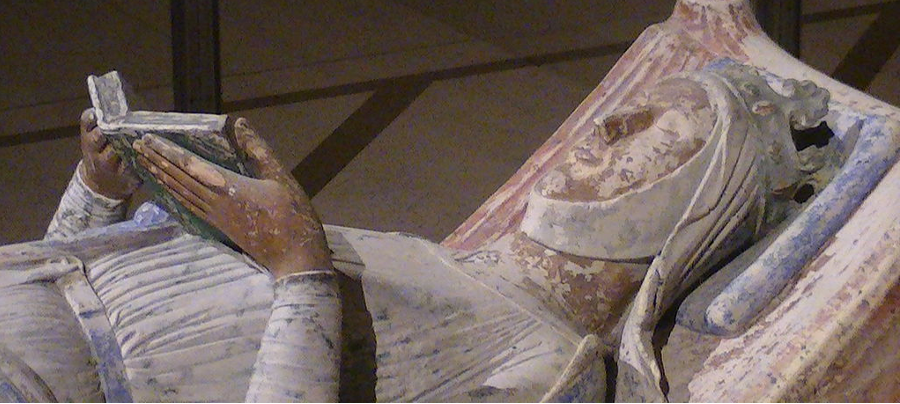
Tudor Treasures & Medieval Musings
WITH GRADUATE HISTORIAN JESSICA CAREY-BUNNING

Eleanor of Aquitaine, ca.1122-1204, is not only the most famous woman to have ever borne that name, but she is also very possibly the first …
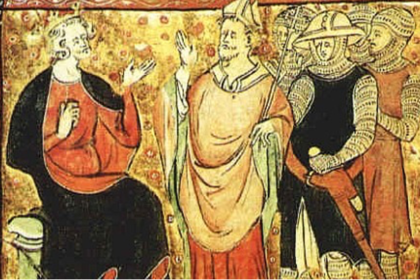
The relationship between Henry II and Thomas Becket is legendary; from closest of friends to the worst of enemies. Given that it ended in the …

Just like today, people in the medieval and early modern periods were fascinated by their genealogies, especially kings and noblemen. Henry VIII possessed a particularly …

Following their coronation on 6th July, 1483, King Richard III and Queen Anne, along with their young son, Edward of Middleham, set off on a …
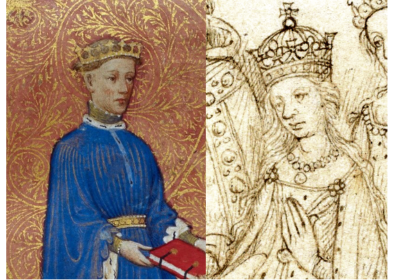
One of the earliest mentions of Valentine’s Day in English literature comes in the form of a poem by John Lydgate. Lydgate was a 15th …
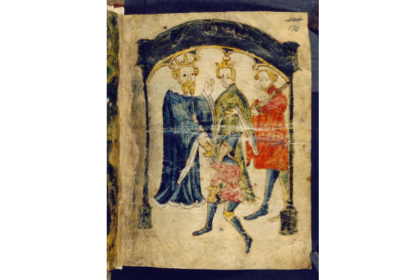
Celebrating the new year is a tradition which has a long history. One of the most evocative medieval accounts is in ‘Sir Gawain and the …

Over 400 years after his death, the shrine of St. Thomas Becket fell victim to the Dissolution of the Monasteries. Henry VIII seemed to take …
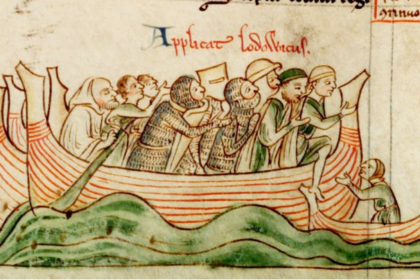
ABOVE: Arrival of Louis in England, from the ‘Chronica Majora’ of Matthew Paris, c.1236–59 When it comes to regnal lists and the royal family tree, …
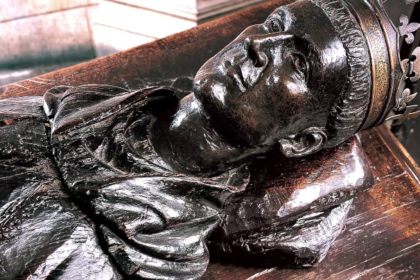
As part of the funeral ceremony, a shield, helm, saddle, and sword, his funeral ‘achievements,’ were carried in procession, to show Henry V’s martial success and knightly honour, and then displayed on a wooden beam above the chantry chapel built around his tomb. Unfortunately the sword has been lost to us, but remarkably the saddle, helm, and shield still survive in the Westminster Abbey museum.

After the Norman Conquest the nobility of England medieval French. English was slow to be accepted by the courts of the English kings…but with the efforts of Edward III, Henry IV and Henry V, English, after many centuries, once more became the language of English kings.